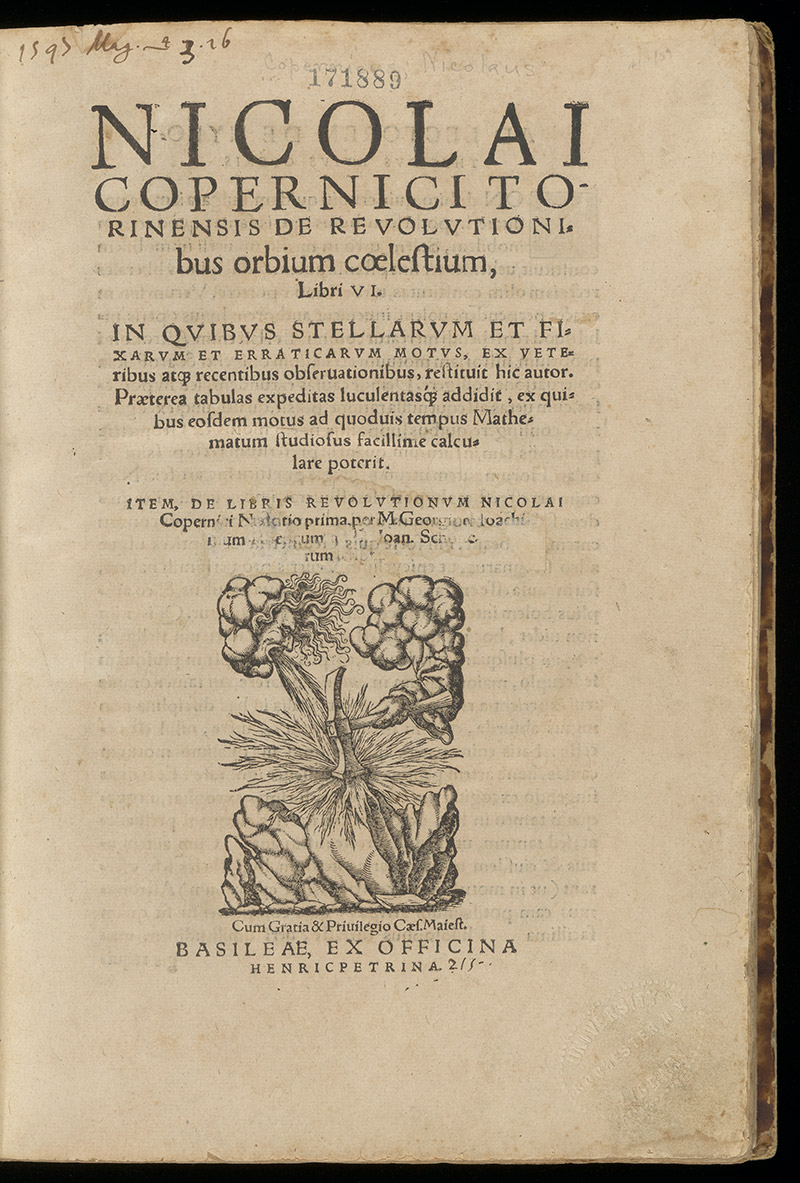Copernicus Is Canceled

- Title page with marks of censorship.
- Nicolaus Copernicus (Mikołaj Kopernik) (1473-1543).
- Nicolai Copernici Torinensis de Revolutionibus orbium coelestium libri sex.
- Basel: Heinrich Petri, 1566.
- Courtesy of the University of Rochester (The Department of Rare Books, Special Collections, and Preservation).
From the time of the publication of the Sidereus Nuncius in 1610, Galileo Galilei had been an apologist for the main tenets of Copernican astronomy. Indeed, Galileo’s interpretation of Copernicus’ treatise as a valid explanation of the universe, as opposed to its having a supposedly hypothetical nature, must have compelled the Church authorities to produce a strong defense of the traditional cosmology embedded in the Holy Scriptures. In fact, the Church officially prohibited the De Revolutionibus few decades after its publication. Published in 1616, Decree XIV was a strong indictment against the Pythagorean doctrine of the universe, that is, heliocentrism, as it was manifested in three works: Copernicus’ De Revolutionibus, Diego de Zuñiga’s In Job commentaria, and Paolo Antonio Foscarini’s Lettera sopra l’opinione de’Pitagorici, e del Copernico della mobilità della terra e stabilità del sole, e del nuovo Pittagorico sistema del mondo. Specifically, the Holy Congregation decreed that the books by Copernicus and Zuñiga be prohibited until corrected, while the letter by Foscarini should be completely prohibited and condemned. The ten corrections to be implemented by the owners of the first or second editions of the De Revolutionibus were described in Decree XXI, which was issued in 1620. Broadly speaking, these emendations were designed to make the text sound both ambiguous and hypothetical.
On the title page of this copy of the second edition of De Revolutionibus we can see that the names of two astronomers included in the Index, Georg Joachim Rheticus and Johann Schöner, have been half-erased by being partially pasted over. A vestige of early ownership is suggested by an inscription on the top left corner: 1597 Mag, possibly followed by a price, “3.26.”